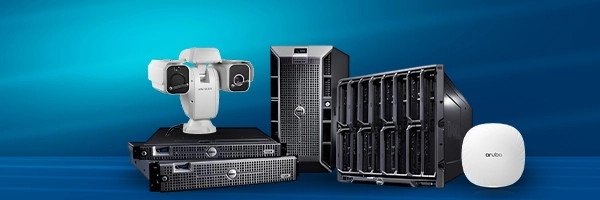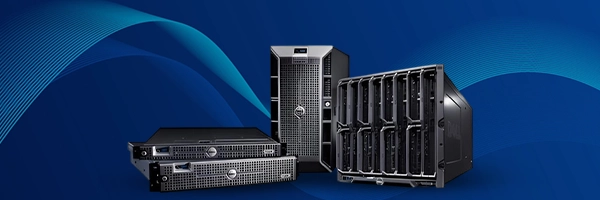- Brief Overview – Cisco ASR (Aggregation Services Router):
- Key Features and Functionalities:
- Use Cases and Scenarios:
- Brief Overview – Cisco ISR (Integrated Services Router):
- Key Features and Functionalities:
- Use Cases and Scenarios:
- What are the key differences between Cisco ASR vs ISR?
- Significant Technical Differences between Cisco ASR vs ISR:
- How to Determine Which Router Is Best for Your Business?
- So, What to Choose?
- Summarizing:
Brief Overview – Cisco ASR (Aggregation Services Router):

Cisco Systems designed a series of high-performance routers. These routers are primarily used in large-scale networks and service provider environments. They are known for their scalability, high throughput, and advanced service capabilities. Some of their main tasks include aggregating multiple network services, handling high-speed data traffic, and providing various network services such as routing, security, and virtualization.
Key Features and Functionalities:
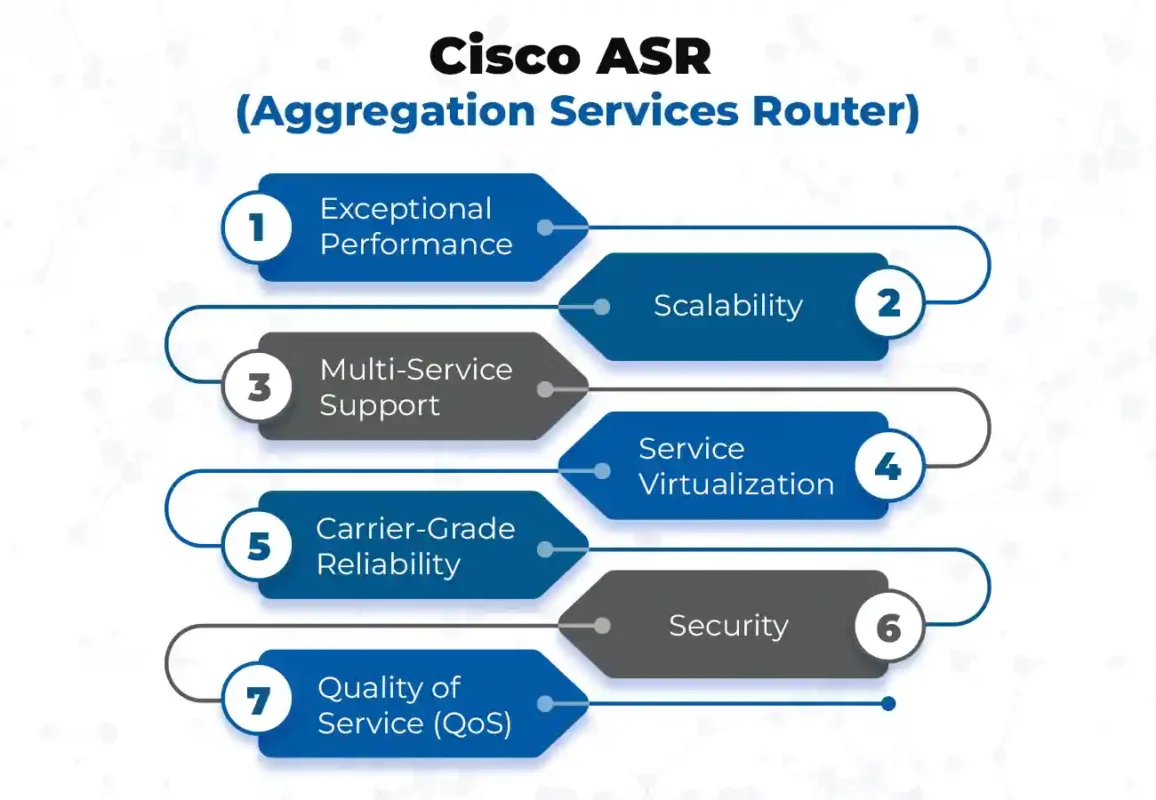
- Exceptional Performance:
Cisco ASR routers are designed for high-performance networking, making them suitable for large-scale data centers, service provider networks, and enterprise environments.
- Scalability:
They offer excellent scalability, allowing for easy expansion of network capabilities as the organization’s needs grow.
- Multi-Service Support:
They support various services, including data, voice, and video, making them versatile for multiple network applications.
- Service Virtualization:
They can host virtualized network functions (VNFs) and support network function virtualization (NFV) for greater flexibility and efficiency.
- Carrier-Grade Reliability:
These are built for carrier-grade reliability, ensuring high availability and uptime for critical network services.
- Security:
They come with advanced security features such as firewall, VPN, and intrusion prevention to protect against cyber threats.
- Quality of Service (QoS):
ASR routers offer strong QoS capabilities to prioritize and manage network traffic effectively, ensuring optimal performance for critical applications.
Use Cases and Scenarios:
- Service Provider Networks:
ASR routers are commonly used in service provider environments to deliver customers high-speed internet, IP/MPLS services, and video streaming.
- Data Center Interconnect:
They are used to interconnect data centers, providing high-speed connectivity for cloud services, storage replication, and disaster recovery.
- Enterprise WAN:
ASR routers are deployed in large enterprises to support wide-area network (WAN) connectivity, ensuring reliable and high-performance connections between branch offices and headquarters.
- Mobile Backhaul:
They play a crucial role in mobile backhaul networks, providing the necessary bandwidth and low latency for mobile operators to connect cell towers to the core network.
- Content Delivery Networks (CDNs):
ASR routers are used in CDNs to optimize content delivery, reduce latency, and improve the end-user experience for streaming media and web services.
Brief Overview – Cisco ISR (Integrated Services Router):
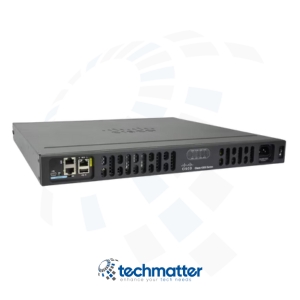
Cisco ISR is a series of versatile routers manufactured by Cisco Systems. These are designed for small to medium-sized businesses and branch offices and are known for their integrated services and capabilities, including routing, security, voice, and application services.
They are generally more compact and cost-effective than ASR routers, making them suitable for smaller-scale deployments. Additionally, they are ideal for connecting remote offices, providing secure connectivity, and offering a wide range of network services in a single device.
Key Features and Functionalities:
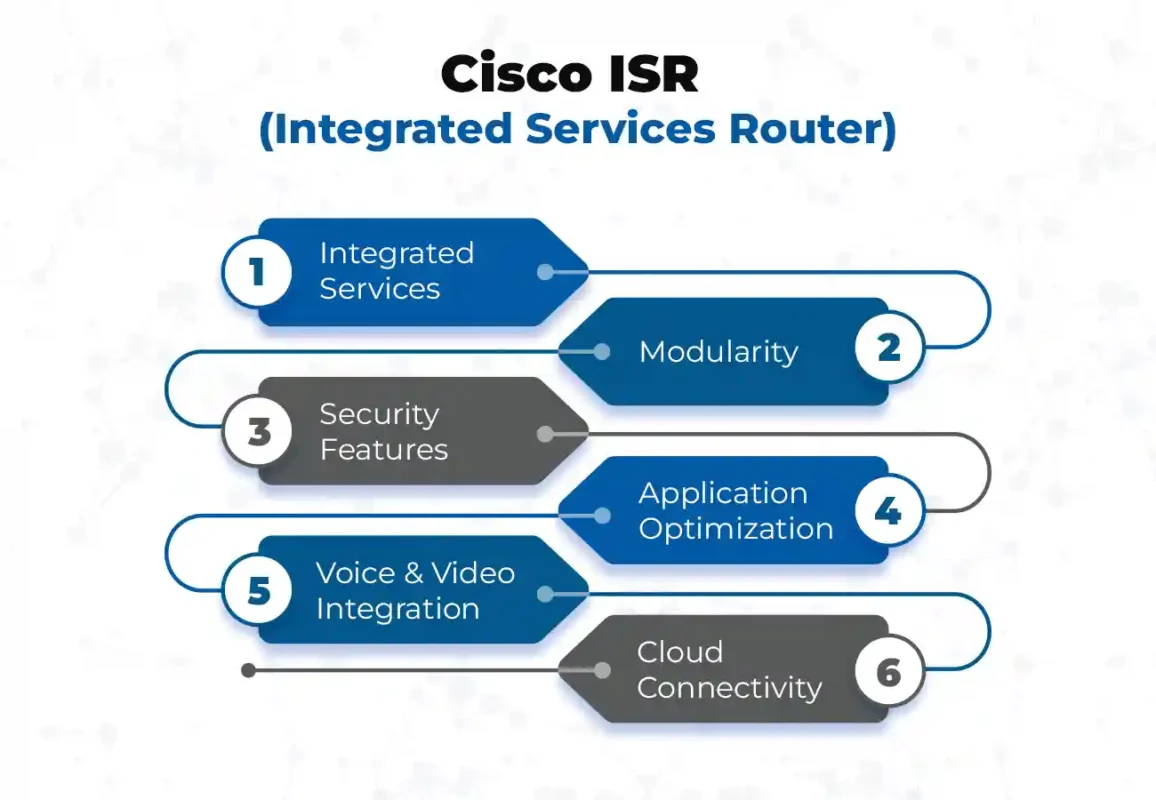
- Integrated Services:
Cisco ISR routers combine routing, security, voice, and application services into a single platform, reducing complexity and hardware requirements.
- Modularity:
They support various interface modules, allowing customization based on specific network needs, such as Ethernet, DSL, or serial connections.
- Security Features:
ISR routers offer robust security features, including firewall, VPN, intrusion prevention, and content filtering, to protect the network from threats.
- Application Optimization:
They include features for application visibility and control, WAN optimization, and quality of service to optimize application performance.
- Voice and Video Integration:
Cisco ISR routers can support VoIP (Voice over IP) and video conferencing services, making them suitable for unified communications.
- Cloud Connectivity:
They provide connectivity to cloud services, facilitating the adoption of hybrid cloud architectures.
Use Cases and Scenarios:
- Branch Office Connectivity:
Cisco ISR routers are commonly used in branch offices to provide secure and reliable connectivity to the corporate network, with integrated security features.
- Retail Networks:
They are deployed in retail environments to connect point-of-sale (POS) systems, inventory management, and back-office operations.
- Teleworker Solutions:
ISR routers enable secure connectivity for remote workers, supporting VPN connections and ensuring data privacy.
- Small and Medium-sized Businesses (SMBs):
SMBs can benefit from the integrated services of ISR routers, which reduce the need for separate devices and simplify network management.
- Managed Services:
Service providers often use Cisco ISR routers to offer managed services to their customers, including VPN services, security, and application optimization.
What are the key differences between Cisco ASR vs ISR?
| Aspect | Cisco ASR | Cisco ISR |
Purpose | Designed for high-performance, high-scale WAN and edge networking | Designed for branch and small to medium-sized office networking |
Scalability | Offers higher scalability with support for more extensive routing and service capabilities | Offers lower scalability compared to ASR routers |
Performance | Provides higher throughput and performance capabilities | Offers lower throughput and performance compared to Asr routers |
| Redundancy | Offers advanced redundancy features for high availability | Provides basic redundancy features |
Price | Generally more expensive due to its advanced features and capabilities | Typically, it is more cost-effective for smaller deployments |
| Operating System | The ASR series works on the Cisco IOS XE and XR systems | The ISR series works on the Cisco IOS system |
Significant Technical Differences between Cisco ASR vs ISR:
| Aspect | Cisco ASR | Cisco ISR |
Routing Capabilities | Supports advanced routing protocols and extensive routing tables | Supports basic to moderate routing capabilities |
Service Modules | Offers a wide range of service modules for various applications | Offers limited service module options |
Performance Modules | Provides dedicated hardware for performance optimization | Relies on integrated components for performance |
WAN Connectivity | Designed for high-speed WAN connectivity with various interface options | Suitable for standard WAN connectivity |
Cloud Access | Cisco ASR does not have cloud access. | Cisco ISR has cloud access. |
Interface Options | Offers a broader range of interface options and higher port density | Offers limited interface options and port density |
Speed | Cisco ASR is capable of handling fast Ethernet connections, which reach speeds up to 100G | Cisco ISR can handle speeds of up to 10G |
| Customization | Allows for more customization and expansion options | Offers fewer customization options |
| Software Features | Includes advanced software features for service chaining and virtualization | Primarily focused on standard networking features |
| Port density | Cisco ASR has a higher port density | Cisco ISR has a lower port density |
How to Determine Which Router Is Best for Your Business?
Choosing the right router for your business is like selecting the perfect tool for a job. In this case, your options are Cisco’s ASR (Aggregation Services Router) and ISR (Integrated Services Router). Let’s break it down:
Cisco ASR (Aggregation Services Router):
Picture this as the powerhouse of routers.
- Speed Demon: ASR is built for the fast lane. It can handle massive data traffic without breaking a sweat. ASR is your roadster if your business relies on high-speed connections and scalability.
- Innovative and Scalable: It’s not just fast; it’s smart, too. ASR boasts advanced features like traffic optimization and network analytics, perfect for businesses with a tech-savvy edge.
- Big Business Ready: It is your go-to if you’re a big enterprise with hefty network demands. It’s robust, dependable, and designed for large-scale operations.
Cisco ISR (Integrated Services Router):
Think of ISR as the all-in-one multitool.
- Versatility Champion is a Swiss Army knife for routers. It combines routing, security, and application services in one compact package, ideal for businesses seeking an all-in-one solution.
- Branch Office Friendly: If you have remote offices or branches, ISR is your best mate. It’s custom-made for smaller-scale setups without sacrificing performance.
- Security Guardian: ISR takes security seriously. It offers integrated threat protection, making it a top choice for businesses prioritizing data safety.
What are the role of Cisco routers and switches in networking
So, What to Choose?
Choosing between ASR and ISR depends on your business needs.
- Go for ASR if You’re a speedster needing top-tier performance, a large-scale operation, and tech-savvy aspirations.
- Opt for ISR if You value versatility, need a compact solution, have remote offices, and prioritize security.
However, remember, the router you pick is the backbone of your network, so choose wisely!
Summarizing:
For your company, it is essential to choose the best Cisco router. Choose between the adaptable ISR or the high-performance ASR, depending on the specific requirements of your network. Make a sensible choice when selecting your router to secure your company’s success, as it is the cornerstone of your connectivity.
“Discover Techmatter’s comprehensive blog, offering a wealth of articles and resources on tech development. Gain valuable tips and insights spanning machine learning, Java, DevOps, and more. From gadgets to transformative advancements, our blog delivers expert analysis, insightful reviews, and stimulating discussions across the digital sector. Join us to explore the tech world at its best.

